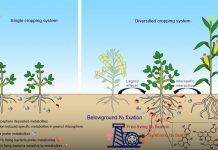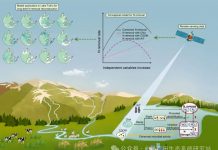Liu J Jiang PK Wang HL et al.. Seasonal soil CO(2) efflux dynamics after land use change from a natural forest to Moso bamboo plantations in subtropical China. Forest Ecology and Management 2011 262(6): 1131-1137. (IF 1.992 农林科学,二区Top)
Abstract
Moso bamboo plantations (Phyllostachys pubescens) are one of the most important forest types in southern China but there is little information on the effects of their establishment and silvicultural practices on soil CO2 efflux. The objectives of this study were to evaluate the effect of land use change from a natural broadleaf evergreen forest to Moso bamboo plantations and their management practices on soil CO2 efflux in a subtropical region of China using static closed chamber method. Regardless of the land uses or management practices the effluxes over a 12-month period had a seasonal pattern with the maximum effluxes observed in summer and the minimum in winter. Whereas there was no significant difference in the total annual soil CO2 efflux between the natural broadleaf evergreen forest (BL) and the conventionally managed bamboo forests (CM) soil CO2 efflux in the intensively managed bamboo forest (IM) was significantly higher. Soil temperature was the most important environmental factor affecting soil CO2 efflux rates for all three land uses. Soil moisture also had a significant positive correlation with soil CO2 efflux rates. Soil temperature and moisture had greater influence on soil CO2 efflux rate in the IM than the CM and BL forests. Soil dissolved organic C had a positive correlation with soil CO2 efflux rate in the CM but had no significant correlation with that in the IM or the BL forests. Our study for the first time demonstrated that conversion of the natural subtropical broadleaf evergreen forest to Moso bamboo does not increase soil CO2 efflux. However when bamboo forests are under intensive management with regular tillage fertiliser application and weeding significantly more soil CO2 emission occurs. Therefore best management practices should be developed to reduce soil CO2 efflux in Moso bamboo plantations in the subtropical regions of China.







